Effective Writing Center – Student Resources
Writing for an Audience
Imagine that you recently had a car accident and you were partially responsible. If you had to write and tell your parents about the accident, what might you say? Imagine how you might tell the story differently if you were telling your friends about what happened. How might this version be different from the one you tell the insurance company? What details would you emphasize? Are there some details you might tell your friends that you might not emphasize or even mention at all in your letter to your parents or the insurance company? Would the order in which you told the various details be different? As you can see, this illustrates the way that we customize our writing to appeal to a specific audience.
Assignments are often designed with a particular audience in mind. For example, if you are writing a business or legal memo, your intended audience is probably people with whom you work, perhaps your boss or your co-workers. If you are writing a proposal of some sort, the intended audience may be a professional but not someone with whom you are intimately acquainted. Just as what you say to your parents and friends might be different than what you say to the insurance company, what and how you report information may vary depending on the audience.
Why is my Audience Important?
Knowing your audience helps you to make decisions about what information you should include, how you should arrange that information, and what kind of supporting details will be necessary for the reader to understand what you are presenting. It also influences the tone and structure of the document. To develop and present an effective argument, you need to be able to appeal to and address your audience.
When writing an academic paper, try to remember that your instructor is not the only member of your audience. Although the instructor is often the only person who will read the finished product, customizing a paper to his or her level of knowledge can run the risk of leaving out important information, since many instructors know far more about your topic than the average reader would. In addition, omitting information that your instructor already knows can result in a weak or unbalanced paper.
However, if you assume that your reader is less knowledgeable than you, you are likely to provide more details and better explanations, which usually results in a much stronger paper. While it is important to consider your instructor’s needs when writing your papers, especially if he or she specifies particular requirements that you must meet, you should consider whether there is a specific intended audience for your assignment. This handout is designed to help you understand the importance of audience and determine what your audience needs to know to follow your ideas.
To effectively plan your assignment, you need to figure out who your audience is and what specific needs they might have. The best place to begin is your assignment handout. Look to see if your instructor specified an intended audience. If not, you might ask your instructor if there is a particular intended reader for the assignment. Common audiences include the following:
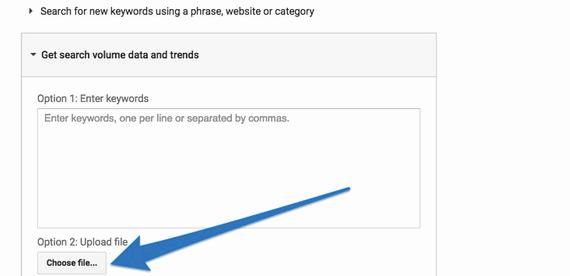
Generalized Group of Readers: Sometimes your audience is just a generalized group of readers. For example, your assignment might specify something like this: “Assume that your classmates are your audience.” Generally, this means that your readers are college educated and know about as much (or as little) as you do on the subject. These readers will need you to provide some background information, as well as examples and illustrations to help them understand what you are presenting.
Professionals in the field: Sometimes your assignment might require you to address people within a particular field or profession. For example, a business assignment might specify the audience as other business professionals in the field. Likewise, for a legal memo, your readers might be a group of legal experts. If your readers are professional peers, you can assume they know the jargon and terminology common to that field. These readers may also expect you to write in the style and vocabulary that is common to the field or discipline. If your writing is designed for people with whom you work, you might be able to assume that they are also knowledgeable about the particular project or topic you are writing about.
The larger academic community: If you are writing an academic research paper, chances are you are writing for an academic community, similar to the readers of professional, peer – reviewed journals in your field. These readers will expect that your writing will conform to the conventions of this particular field. It’s often helpful to look at the language and style that experts in the field use when writing for these kinds of journals, so pay special attention to this as you research. These readers will expect you to cite known experts in the field (this shows that you are well – read and have done your homework) and to contribute something new to the established body of knowledge.
Once you know who you are writing to or for, you can begin to consider the best way to address your audience and customize the paper meet their needs. Below are some things to consider:
What is the relationship between the writer and the reader? If you are in a position of authority over your readers, as might be the case if you are writing some sort of employment memo, your tone might be more instructive and authoritative. However, if you are writing to someone with more power than you, such as your boss, your tone should be more formal and polite. You would make suggestions rather than issue directives, for example. Always be polite and respectful to a reader!
How much does the reader know? Does the reader have more knowledge or less knowledge than you? Are they familiar with the jargon or terminology of this specific discipline, or will you need to define terms? Do they have the background knowledge (including the history of the topic or issue) necessary to understand your topic, or will you need to provide background information? You might also consider what information you can leave out. You want to make sure you provide all the information the reader needs, but you don’t want to bog down the reader with information he or she already knows.
Is the audience likely to agree or disagree with you? It’s important to think about this before you begin writing, so you can write in a way that appeals to your audience. Sometimes you will be addressing an audience that agrees with you, so you’ll be emphasizing why their point of view is a productive or beneficial one, and perhaps arguing in favor of a course of action or particular outcome. You’ll want to reinforce their opinion, but try to avoid flattery or excessive compliments, since this can make you sound insincere.
On other assignments, you will be writing to an audience that already has a particular opinion or stance on your topic, and your goal will be to change their minds or alter their points of view. You might be required to write to an audience that is opposed or even hostile to your ideas. Avoid telling an audience that their opinion is wrong or incorrect; instead, try to communicate why a change of opinion would be beneficial to them.
What will the reader do with the information? Will the reader be making a decision or taking a course of action based on the information you provide? If so, have you included all the information necessary for that person to make an intelligent decision or take action? Have you anticipated questions the reader might have and provided answers for them?
Once you’ve identified your audience and thought about the best way to appeal to them in your writing, it’s often helpful to make a very informal list of what your audience already knows. what they need to know, why they need to know it. and how you can help them. Keep this close by so you can easily refer to it as you write, since it will be useful if you get stuck or aren’t sure how to proceed.
Resources
UNC-Chapel Hill Writing Center — Audience


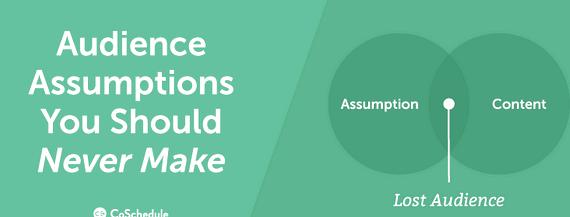


 Myoril 4 mg composition writing
Myoril 4 mg composition writing Simon ungers autonomy and dialogue writing
Simon ungers autonomy and dialogue writing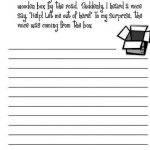 Mystery writing prompts ks2 english
Mystery writing prompts ks2 english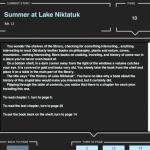 Writing apps for choose your own adventure
Writing apps for choose your own adventure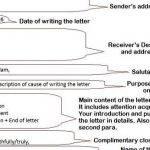 Letter writing rules informal economy
Letter writing rules informal economy






